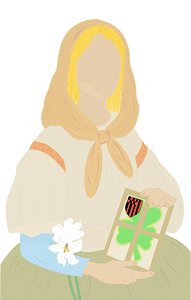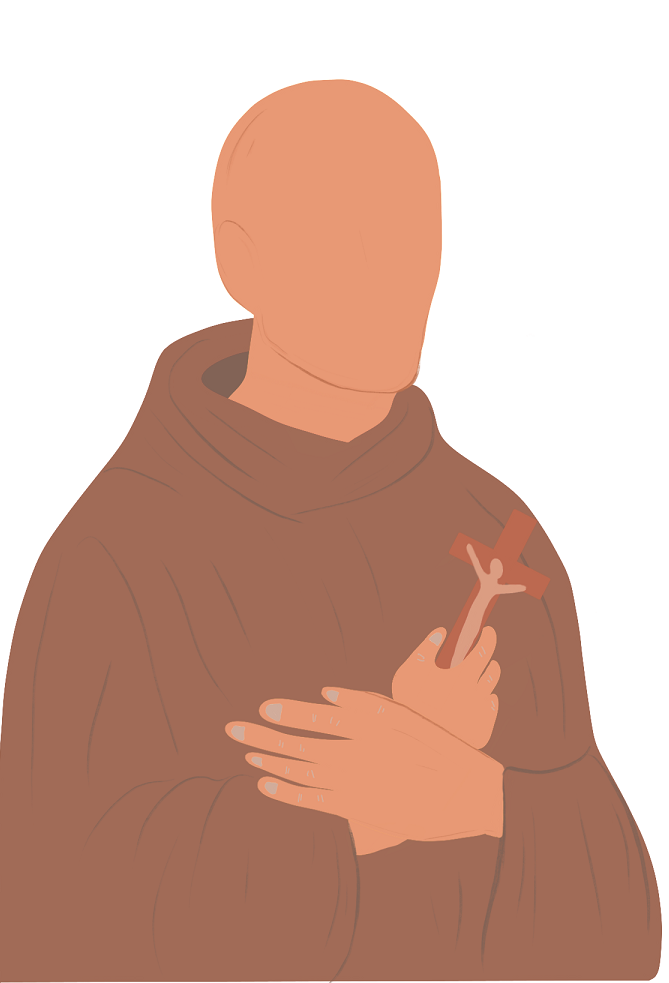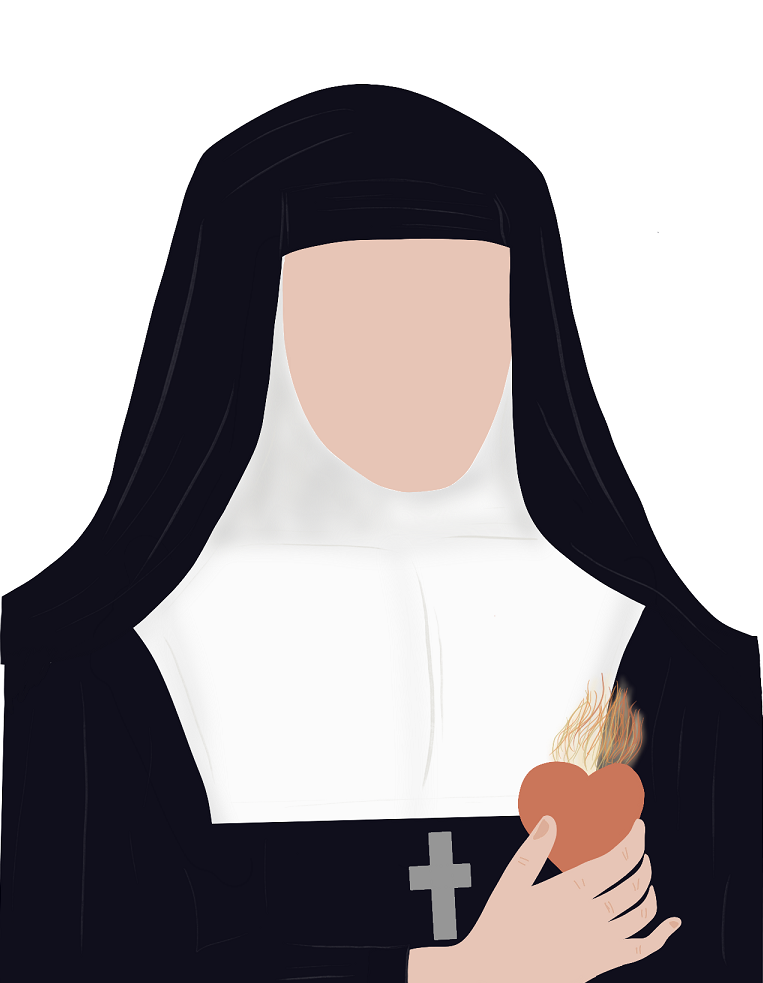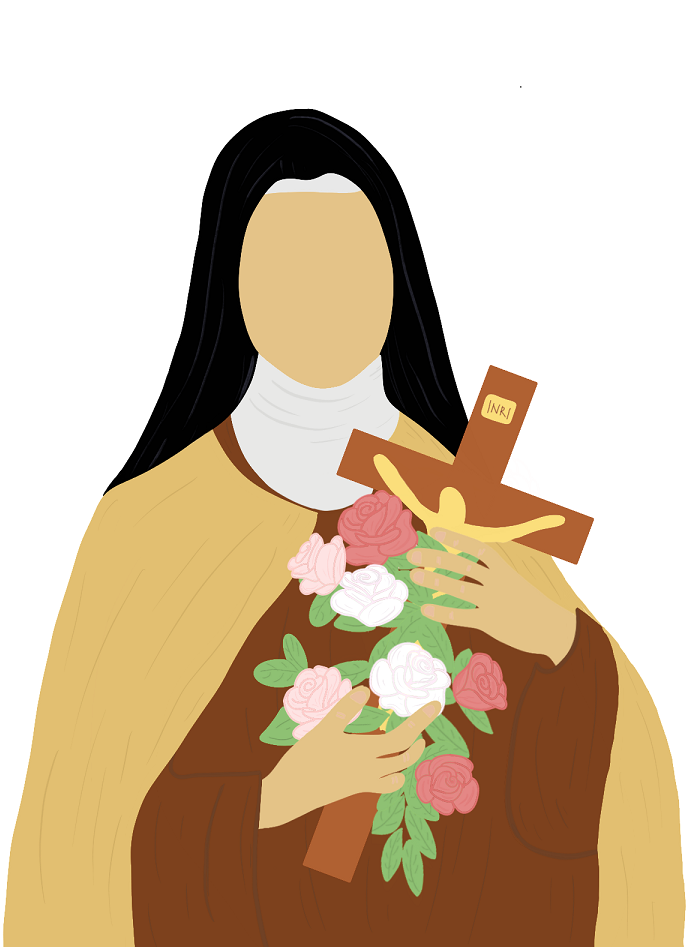Mental Health and Saints
St. Dymphna

St Dymphna was born in the seventh century in Ireland to a pagan king and a pious Christian queen. When Dymphna was 14, she took a vow of chastity and consecrated herself to Christ. After her mother passed on that year, the King’s advisor suggested he should remarry as he was deeply depressed and emotionally unstable over the queen’s death.
Unable to find a new wife that looked as pretty as the late queen, he decided to marry his daughter, Dymphna, as she would remind him of her mother as he looked upon her, as suggested by his advisor. After Dymphna found out about it, she fled but the king found her a year later. Despite his pleading, Dymphna stayed true to her vow of chastity and was eventually beheaded by her own father.
St Dymphna provides a great deal of comfort to persons with psychiatric issues and their families as the child of a mentally ill man. She is invoked to create an atmosphere of quiet and solace for people who live amid instability and to bring peace to the imbalanced.
Saint John of God

St John of God was a 16th Century Spanish solider who gave up his Christian belief and led a pagan life before his conversion. Before John joined the army, he worked in the Portuguese countryside as a hard labourer and a shepherd. One day, John of God heard John of Avila’s preaching and upon realisation of his sinful acts, started to beat himself up in public, tearing his hair and behaving wildly. He was then put in a mental institution. John of Avila heard about him and came to visit him, advising him to use his energy to care for the poor and sick.
Through his diligent attempts raise funds for rent, medications, bedding, and other necessities for the impoverished and vulnerable, showing compassion in caring for them, John of God slowly recovered and drew many people to his ministry. He was eventually able to purchase a former Carmelite convent as a permanent haven with the aid of donors and friends.
Over time, John's physical and mental health suffered as a result of his nonstop labour for the underprivileged and died from pneumonia while saved a drowning man. He passed away peacefully by kneeling next to his hospital bed and holding a cross.
St Jane Frances de Chantel

St Jane fell into depression when her husband died in a hunting accident. For four months, she was barely able to St Jane Frances de Chantel cope with her circumstances. But a letter from her father about her maternal duties prompted her to act. Slowly, she managed to forgive the man who killed her husband, extended alms to needy persons, and divided her time between caring for her children, work, and prayer.
In her prayers, St Jane asked God to send her a spiritual guide to lead her through the darkness, and in a vision, God showed her the spiritual director. When St Francis de Sale came to preach one Lent, she recognised this man to be the spiritual director God showed her and placed herself under his guidance.
Together, they founded the Congregation of the Visitation for women. Even as she successfully guided her congregation, St Jane bore a cross of mental anguish. In a letter to St Francis, she wrote, “My interior state is so gravely defective that in the anguish of spirit, I see myself giving way on every side. Assuredly, my good Father, I am almost overwhelmed by this abyss of misery…Death itself, it seems to me, would be less painful to bear than the distress of mind which this occasioned." (Letter 6)
St Jane’s struggles allowed her to serve with compassion in her role as mother superior, particularly toward nuns who suffered from similar difficulties, allowing her to still live a full and meaningful life.
St Therese of Lisieux

St Therese, also known as the Little Flower, was born in 1873. As the youngest, she had a lively childhood and was loved by her family. However, at the age of four, her mother died, and she was deeply traumatised, terming it as the “most painful” period of her life. At 10 years old, St Therese fell terribly ill and suffered what appeared to be a nervous breakdown. She had constant headaches, thrashed around in her bed, and suffered cruel hallucinations. At 12, she became scrupulous, a mental health problem that she never overcame. Today, we know that scrupulosity is a symptom of obsessive-compulsive disorder.
After much struggle, she entered the Carmelite monastery at an early age, but her father soon suffered multiple strokes. Being in cloister, St Therese was unable to attend to her father, and experienced dryness in prayer, often falling asleep during prayer time. She also experienced extreme doubts of God’s existence in her depression. Her physical body was weak too. Yet, when she was ill, she carried on working without telling anyone. At times, the physical and mental pain was so great that she was tempted to take her own life. It was only through her faith in God that she carried on. She eventually succumbed to tuberculosis at the age of 24.
Under Agnes of Jesus, her sister and then prioress’s order, she documented her writings and thoughts which was then compiled into a book and autobiography, The Story of a Soul. Through her Little Way, St Therese is recognised as the youngest Doctor of the Church, due to her holiness and influence through her writings on the spirituality of the Church.
By Bertilla Ang and Patricia Pang
